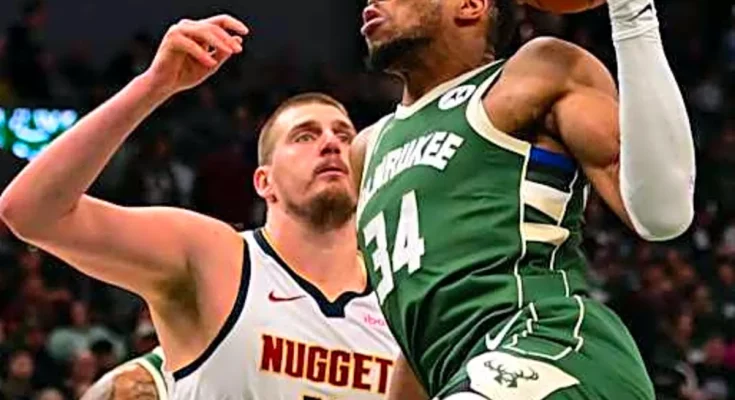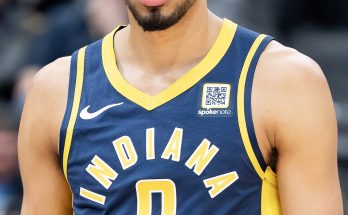The Greek Basketball Federation has found itself at the center of an unexpected controversy as it issued a fiery public response to swirling rumors regarding Giannis Antetokounmpo’s commitment to the national team and his relationship with the federation itself. In recent weeks, speculation in European and American media circles suggested that the two-time NBA MVP and global superstar might be distancing himself from Greece’s basketball program due to alleged tensions behind the scenes, or even considering limiting his involvement with the national team moving forward. The federation, in a rare and strongly worded statement, has categorically rejected those claims, calling them “malicious,” “fabricated,” and deliberately damaging to both Giannis and the sport in Greece.
The timing of this backlash is notable because Giannis Antetokounmpo has been one of the most visible ambassadors for Greece on the international stage. Born in Athens to Nigerian immigrants, Giannis represents both the new face of Greek identity and a global sports icon whose story resonates across cultures. His rise from street vendor to NBA Finals MVP is legendary, and he has consistently expressed pride in his Greek roots, proudly wearing the blue and white jersey of the national team whenever circumstances have allowed. For the federation to publicly defend him so strongly reflects not only Giannis’ stature within the sport but also the high stakes surrounding Greece’s preparations for upcoming international competitions, including Olympic qualifiers and the looming EuroBasket tournaments.
The rumors, while varied in their specifics, seemed to suggest a narrative of growing disconnection between Giannis and the Greek basketball leadership. Some reports implied that he was unhappy with how the team was managed or that his input on training and preparation had been disregarded. Others went as far as to claim he was considering scaling back his participation to prioritize his NBA career with the Milwaukee Bucks. These insinuations quickly gained traction on social media and in certain sports outlets, creating a storm of debate about loyalty, professionalism, and the challenges of balancing national duty with the demands of being an NBA superstar. The federation’s decision to lash out against these reports signals just how seriously they view the potential damage to their reputation and to Giannis’ own standing as a symbol of national pride.
In its statement, the Greek Federation emphasized that Giannis has always been committed to representing Greece and that his relationship with the national program remains strong. It stressed that any claims of discord or tension were not only untrue but also harmful attempts to sow division within the team and mislead the public. The language was unusually forceful, with federation officials warning that such falsehoods undermine not only Antetokounmpo but also the unity of the entire national squad. In an era when players’ decisions to prioritize their health or professional careers are often scrutinized through the lens of patriotism, such rumors can carry weight well beyond the basketball court. For Greece, a country with a rich basketball tradition and fervent fanbase, the mere suggestion that its most famous player might waver in his commitment was enough to trigger widespread unease.
Giannis’ journey with the Greek national team has not always been straightforward. Due to injuries, the grueling length of the NBA season, and the scheduling of FIBA competitions, he has missed several international tournaments, including some where his absence was keenly felt. However, when available, he has suited up with undeniable passion, often taking on leadership responsibilities both on and off the court. In EuroBasket 2022, for instance, he was dominant and showcased why he is considered one of the greatest players in the world, even if Greece fell short of medal contention. To insinuate that his absences or frustrations were the result of disloyalty, rather than practical considerations like health and team logistics, paints an unfair and misleading picture. The federation’s anger stems largely from this mischaracterization, as it not only diminishes Giannis’ sacrifices but also risks damaging his relationship with fans who adore him as a national hero.
What makes this controversy particularly complex is the intersection of sports media, national expectations, and Giannis’ unique identity. As a Greek of Nigerian descent, he has sometimes faced scrutiny from those who question his “authenticity” as a symbol of Greece, despite his unwavering pride in his nationality. Throughout his career, Giannis has had to navigate questions of belonging and representation, often answering them with grace and humility. For the federation, defending him so aggressively is also a way of reasserting that he is, without question, one of Greece’s own, and that attacks on his commitment are not only baseless but also hurtful to the broader national narrative they are trying to build around inclusivity and pride.
In the NBA, Giannis is known not only for his dominance on the court but also for his loyalty to the Milwaukee Bucks, the team that drafted him. Despite opportunities to pursue glamour markets or join super teams, he chose to stay in Milwaukee, delivering the city its first championship in half a century in 2021. That same loyalty has defined his approach to Greece, where he has repeatedly stated that playing for the national team is one of his greatest honors. It is this consistency that makes the recent rumors so frustrating for both him and the federation, as they cut directly against the values he has demonstrated time and time again.
Beyond the immediate fallout, this episode highlights a broader tension that many international basketball federations face when dealing with NBA superstars. Players like Giannis, Luka Dončić, Nikola Jokić, and others carry enormous responsibilities during the NBA season, from grueling schedules to the pressure of carrying franchises and protecting their long-term health. Their participation in summer tournaments is often subject to careful negotiation between players, teams, and national federations. When rumors arise about discontent, they often play into pre-existing anxieties about whether these stars will continue to prioritize national duty. For federations, maintaining trust with players while managing fan expectations becomes a delicate balancing act.
In Greece, where basketball is deeply woven into the national fabric thanks to legends like Nikos Galis, Panagiotis Giannakis, and more recently Vassilis Spanoulis, the presence of Giannis represents both continuity and evolution. He is a bridge between Greece’s golden eras and its present-day ambitions, embodying the possibility of competing on equal footing with the world’s best. Losing his full commitment, even as a mere rumor, threatens to puncture that sense of collective hope. That is why the federation’s response was not just about quashing falsehoods but about preserving the symbolic importance of Giannis to the national psyche.
Interestingly, Giannis himself has remained relatively quiet on the matter, preferring to let his actions and the federation’s words speak for him. This is consistent with his general approach to controversies: he tends to focus on his family, his training, and his responsibilities, rather than engaging directly in media battles. His humility and focus have made him a beloved figure not only in Greece but globally. Still, as the dust settles from this federation statement, many expect him to eventually reaffirm his commitment publicly, if only to silence any lingering doubts.
For the federation, the challenge now is to rebuild trust with the public and ensure that future speculation does not spiral into another damaging controversy. Transparency, consistent communication, and visible collaboration with Giannis and other players will be essential. In a media environment that thrives on speculation, cutting off space for misinformation is as important as any on-court strategy. Meanwhile, the national team must prepare for its upcoming competitions with clarity and unity, knowing that every step will be scrutinized.
The episode also sheds light on the immense pressure placed on global stars like Giannis, who must juggle multiple layers of expectation: from their professional teams, their national federations, their families, and their fans. Every absence, every injury, every statement can be magnified into a referendum on loyalty or ambition. In that sense, the federation’s aggressive defense of Giannis is a recognition that he cannot be left to fend off these narratives alone. It is a reminder that he is not just a player but a symbol, and symbols require protection.
Ultimately, this controversy may fade quickly, especially if Giannis once again suits up for Greece and delivers the kind of performances fans have come to expect. However, it also underscores how fragile the relationship between superstar athletes and national federations can be, even in countries where mutual respect and admiration run deep. For Greece, safeguarding that relationship is paramount, not just for competitive success but for the broader sense of identity and pride that basketball has long provided.
The Greek Federation’s sharp response to the rumors about Giannis Antetokounmpo is, in many ways, a declaration of loyalty to him as much as it is a rebuttal to the media. It signals that the country stands firmly behind its most famous basketball son and will not tolerate narratives that threaten to drive a wedge between him and the people. In doing so, the federation has reaffirmed both its faith in Giannis and its understanding of his place in Greece’s sporting and cultural legacy. For Giannis, who has built his career on resilience, loyalty, and hard work, the controversy is just another reminder that greatness often comes with challenges off the court as well as on it. Yet with the backing of his federation and the enduring love of his fans, he remains poised to continue writing a story that belongs as much to Greece as it does to the NBA.
Word count: \~1503



